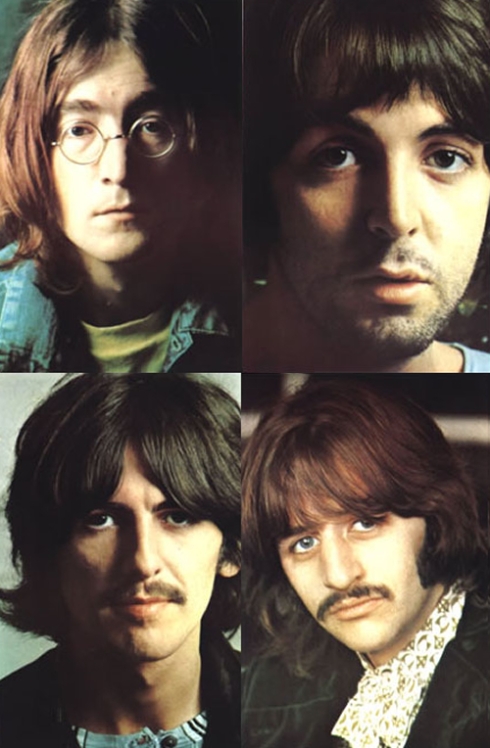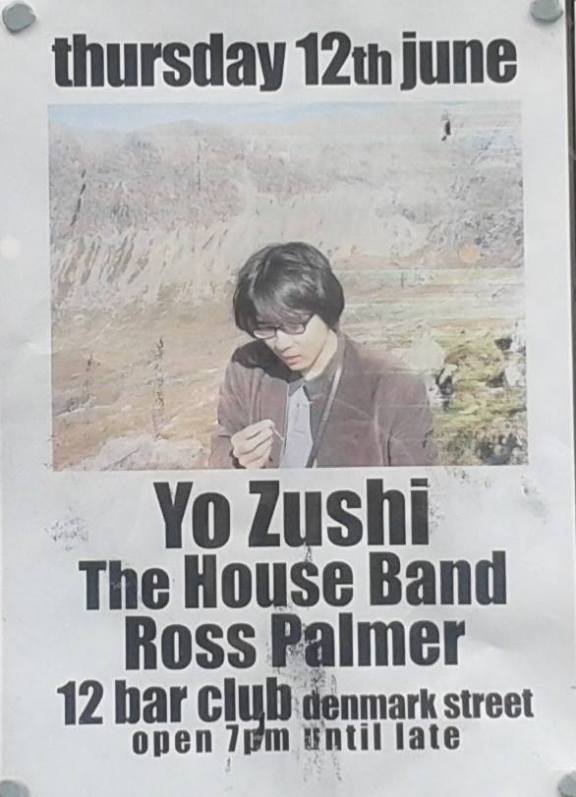Yesterday evening I caught up with my friend Yo Zushi on the phone. As usual, we went through a bunch of subjects: jazz harmony, songwriting processes, logistical stuff related to this. But the bit of the conversation that got me thinking the most was about the creepy atmosphere of certain late sixties’ artists, particularly the Beatles and the Beach Boys. We talked about the White Album and discussed that thorny old issue: would it have been better as a single record?
For me, the answer’s no. There are, to be sure, a lot of albums that are simply too long, that could have done with a few songs being removed and the remaining edited somewhat to trim their running times. The bloat of the late CD era (roughly c.1998 to c.2005) is a well documented phenomenon, caused by the slow realisation that the technical deficiencies of vinyl no longer applied and so running times didn’t need to be kept to around 22 minutes a side. People stopped making albums as if the delivery medium would be the LP, and simply filled the CDs up. Probably most music fans can think of a bunch of albums from that era that just feel bloated and distended, particularly hip-hop/R&B fans; Yo and I spoke particularly about R.E.M.’s Up, which we both agree is their final interesting album, with a bunch of strong, atmospheric, slightly loungey songs that did something that was new for them, and was a brave response to Bill Berry’s departure. At 65 minutes, though, it’s too much of a slog to sit through in one sitting without the attention wandering. I’d excise Lotus and Sad Professor and would be happy to have had shorter versions of most of the remaining; Airportman, Daysleeper and At My Most Beautiful are fine at the lengths they are, but why on earth is Diminished six minutes long?
Then the White Album question. Yo’s in the camp that would prefer a single-album version. I’m not. When we went through out preferred tracklistings, I concluded that I could make a case for removing 11 of out of 30 tracks, but that the record would then not have worked as a single LP in the vinyl age (it would still have been too long), and that a lot of the context that make the great songs great would be missing. To misquote Greil Marcus on Electric Ladyland, the White Album is a mess, but it’s a sprawling, fascinating mess. To take away The Continuing Story of Bungalow Bill (and I understand why many want to) may make the record ‘better’, but at the expense of changing what it is, its character, its shifts in mood, which combine to create one very singular mood.
The interest in listening to the White Album derives from how those songs play with each other, how McCartney’s raucous Birthday is succeeded by Lennon’s despairing (or faux-despairing) gutbucket Yer Blues, which in turn gives away to McCartney’s solo acoustic Mother Nature’s Son, before being unceremoniously followed by Everybody’s Got Something to Hide Except Me and My Monkey, with its frantic bell and babbling voices. The White Album may not be the finest demonstration of songcraft in the Beatles’ career, but it showed how expertly they constructed songs into albums.
The White Album has so many facets to it that it prompts debates between fans as to what its strongest elements are. Yo is a fan of Lennon’s acoustic fingerpicking songs, written during the Beatles’ stay in Rishikesh: Dear Prudence and Julia. Both songs have pretty big reputations, Prudence’s at least partly based on the Siouxsie and the Banshees cover. I don’t care that much for either of them. The slippery, elusive Lennon of Happiness is a Warm Gun, Sexy Sadie and Cry Baby Cry interests me far more. Similarly, of McCartney’s rock songs only Back in the USSR stands up as a composition, and it’s hampered by the author’s ham-fisted drum track (recorded while Ringo was absent, having temporarily quit band and session). McCartney’s acoustic songs, on the other hand — Mother Nature’s Son, Blackbird, I Will, Martha My Dear — are all beautiful little miniatures, with all of his talent for expressive, expansive melody intact. Blackbird may be a weighty metaphor, and Martha My Dear may start out being about a sheepdog and end up being about nothing at all, but all these songs share a lightness of touch that’s completely disarming. (Junk, which appeared on McCartney’s first solo album, was demoed at this time too, and is almost impossibly lovely. I wish it had made the cut).
Which leaves George Harrison to encapsulate the White Album issue. He has four songs on the record, ranging from the sublime to the ridiculous. He never wrote anything better than the hushed, devotional Long Long Long; he never wrote anything worse than Piggies, which is without a single redeeming feature. While My Guitar Gently Weeps is ponderous, and hampered by El Clappo’s deep-as-a-puddle ‘blues’ guitar, but it succeeds on the strength of its chorus, and certain live versions down the years have caught fire and shown the song’s underlying robustness; Savoy Truffle (about, rather than featuring, Eric Clapton) would be the worst entry in his Beatles songbook if Piggies hadn’t got there first. Played four: won two (one by a whisker); lost two, ignominiously.
Ultimately the whole is greater than the sum of its parts with the White Album. In the iPod playlist era, with any amount of alternate versions and demos available, we can all create our own favoured White Album (or Smile, or whatever), but I can’t believe any other tracklisting could create the fragile spell the unedited White Album weaves over the course of 94 minutes. And if the concluding trio of Cry Baby Cry, Revolution 9 and Good Night don’t leave you feeling a wordless, inexpressible panic and leave you looking over your shoulder into the shadows in the corner of the room, you’re made of sterner stuff than I am.

You know who these people are and which one’s which, don’t you? Good.




